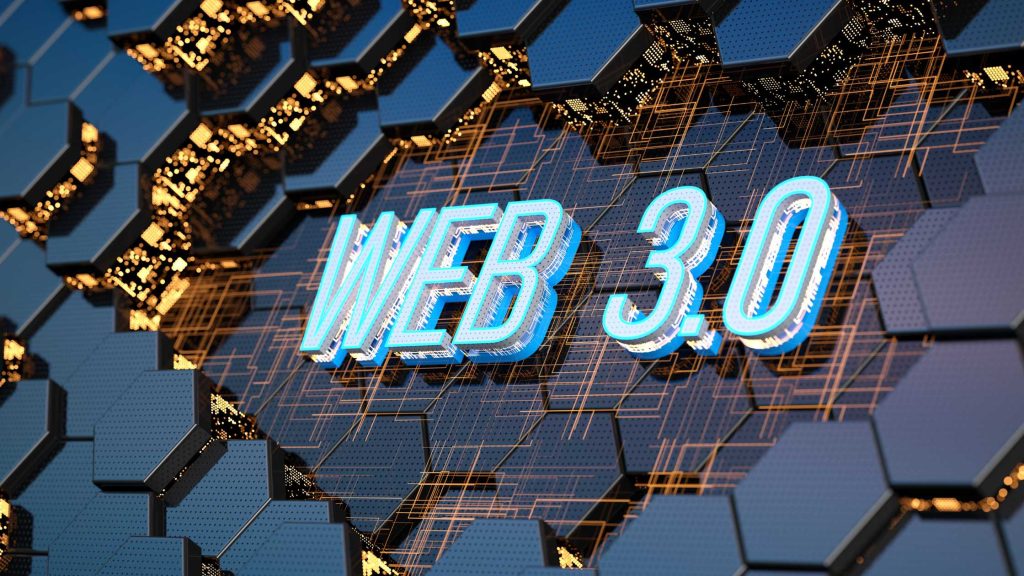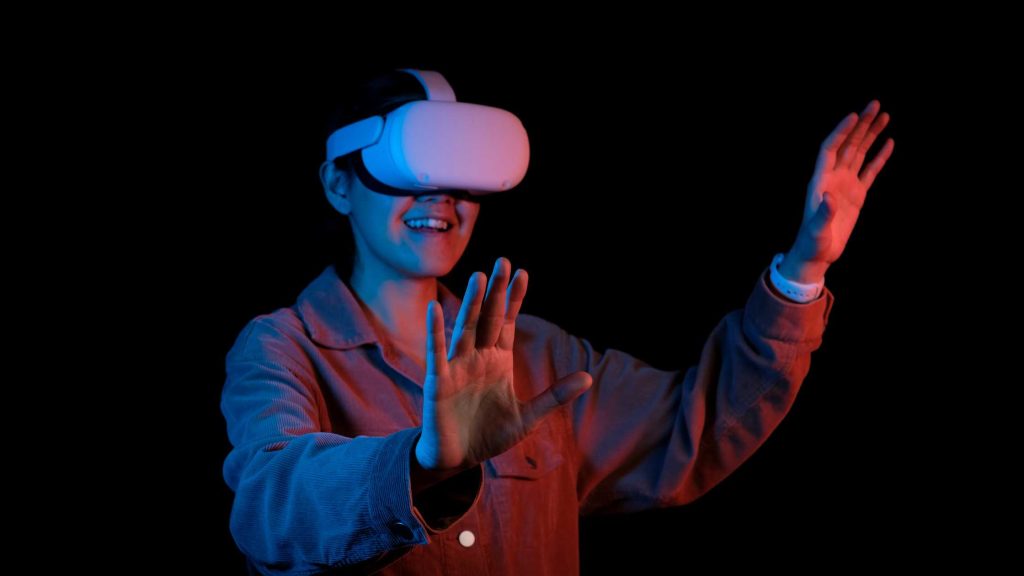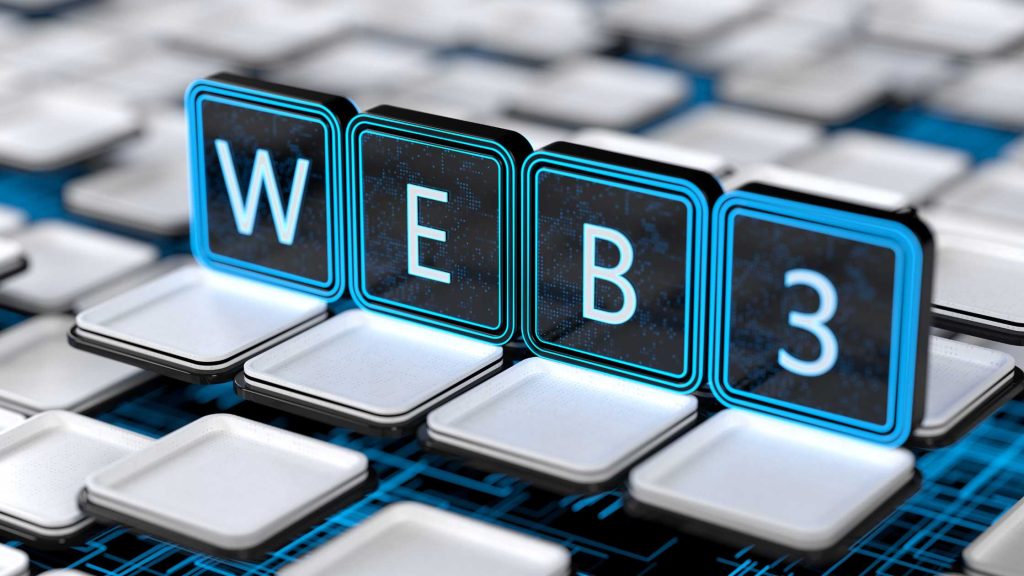The Impact of Web3 on Digital Marketing in 2025 : Comprehensive Guide
Web3 on Digital Marketing : Web3, also known as Web 3.0, represents the next phase of the internet. It’s built on decentralized networks powered by blockchain technology, offering a shift away from the centralized models that dominate today’s digital landscape.
Table of Contents
This new framework empowers users by giving them control over their data, online interactions, and digital assets. As we move into 2025, Web3 is shaping the future of digital marketing, creating new opportunities and challenges for businesses and marketers alike.
The Core Principles of Web3

At the heart of Web3 lies decentralization. Unlike Web 2.0, where power rests with centralized platforms like Google, Facebook, and Amazon, Web3 operates on peer-to-peer interactions and decentralized networks. Key features of Web3 include:
- Blockchain Technology: Ensures transparency and security.
- Smart Contracts: Automate and enforce agreements without intermediaries.
- Decentralized Applications (dApps): Operate without central control.
- Ownership and Privacy: Users control their own data and digital identities.
Understanding these principles is crucial for marketers aiming to leverage Web3 in 2025.
Also Read : Role of Virtual Reality in Ecommerce
Decentralization and Ownership: A New Era for Marketing Control
The decentralized nature of Web3 dramatically shifts how digital marketing works. Traditional marketing models have relied heavily on intermediaries—social media platforms, ad networks, and search engines. With Web3, marketers can bypass these middlemen, reaching consumers directly through decentralized platforms. The shift towards decentralized advertising platforms like Brave is a prime example of how Web3 is disrupting traditional digital marketing.
Brave uses blockchain technology to reward users for their attention with Basic Attention Tokens (BAT), offering a transparent and opt-in advertising model. This model benefits both advertisers and consumers by cutting down on intrusive ads while providing users with tangible rewards for their time and engagement. In 2025, Web3 will empower businesses to build direct relationships with consumers, cutting down reliance on ad networks. This model will drive more authentic and personalized marketing campaigns, allowing for deeper engagement and increased trust.
Tokenization: Transforming Loyalty Programs and Engagement
One of the standout features of Web3 in digital marketing is the use of tokens. Unlike traditional loyalty points or discounts, Web3 allows for tokenization—the process of turning digital assets into tradable tokens. This opens new avenues for brands to incentivize user participation.
- NFTs (Non-Fungible Tokens): These digital collectibles can be used to create limited-edition, brand-specific assets that offer exclusive rewards to consumers.
- Tokenized Loyalty Programs: Brands can create their own tokens that customers earn and trade, offering a more engaging and dynamic form of loyalty.
By using NFTs and tokens, brands can build a sense of community and exclusivity. Customers who own a brand’s tokens or NFTs might gain early access to products, exclusive content, or even voting rights on product features, effectively creating a more engaged audience.
Data Privacy and Permission-Based Marketing: A More Ethical Approach
As Web3 emphasizes user control and transparency, data privacy becomes a key consideration in digital marketing. Unlike the current models in Web 2.0, where companies collect massive amounts of user data without much oversight, Web3 encourages permission-based data sharing. Web3 technologies such as Self-Sovereign Identity (SSI) give users complete control over their personal data. Marketers must adapt by implementing permission-based strategies, where consumers willingly share their data in exchange for valuable rewards or benefits.
This increased trust is likely to lead to higher quality interactions with customers who feel more secure about their information. The rise of blockchain-based analytics platforms also allows for transparent tracking of consumer behavior. Marketers can collect real-time data with user consent while ensuring that no sensitive information is misused. This will fundamentally shift how companies approach targeting and segmentation.
Community-Led Growth: The Emergence of DAOs in Marketing

Web3 introduces the concept of Decentralized Autonomous Organizations (DAOs)—digital organizations that are owned and governed by their community members. These DAOs will significantly influence how marketing campaigns are designed and executed in 2025.
With DAOs, brands can involve their audiences in decision-making processes. For example, a DAO might allow consumers to vote on product development, marketing strategies, or even advertising content.
By participating in the DAO, users can earn tokens or rewards, which drives engagement and loyalty. This community-driven marketing model fosters deeper connections between brands and their audiences. Marketers can tap into the collective intelligence and passion of their customers to shape brand narratives and strategies, creating more authentic and grassroots campaigns.
Web3-Powered Social Media: A New Influencer Ecosystem
The rise of decentralized social media platforms is another significant Web3 trend reshaping digital marketing in 2025. Platforms like Lens Protocol and Minds allow creators to monetize their content directly, bypassing the traditional reliance on ad-based revenue models. Web3 enables creators to own their content and monetize it in new ways, such as through direct micropayments, NFTs, or tokens.
This shift creates opportunities for brands to partner with influencers in a more transparent and mutually beneficial manner. Since Web3 platforms use blockchain verification, influencer campaigns become more authentic and less susceptible to the manipulation of metrics like fake followers or engagement. For digital marketers, Web3-powered social media opens the door to a more transparent influencer ecosystem, where collaboration is based on trust and shared values, rather than inflated follower counts.
Smart Contracts: Streamlining Marketing Transactions
Web3 introduces smart contracts, self-executing contracts where the terms of agreement are directly written into code. These contracts are automatically triggered when certain conditions are met, eliminating the need for intermediaries. In marketing, smart contracts can be used to automate a variety of tasks, including:
- Affiliate marketing: Payments are automatically made when conversion criteria are met.
- Influencer partnerships: Payments are made based on pre-agreed metrics, such as engagement or sales.
- Ad transactions: Ad budgets can be automatically allocated based on campaign performance, ensuring efficiency and accuracy.
Smart contracts will reduce administrative overhead and minimize fraud, making marketing transactions more transparent and trustworthy.
Metaverse Marketing: Engaging Audiences in Virtual Worlds

The metaverse—a virtual, immersive world where people can socialize, work, and play—is a key component of Web3. As we approach 2025, metaverse marketing is set to revolutionize how brands connect with their audiences. In the metaverse, brands can create immersive experiences, from virtual stores to product launches.
For example, a fashion brand could set up a virtual runway show in the metaverse, allowing users to interact with the collection in real-time, purchase digital versions of clothing, or even attend exclusive events. The metaverse offers unique opportunities for interactive storytelling and experiential marketing, allowing consumers to engage with products in innovative and memorable ways.
Decentralized Search Engines: A New SEO Paradigm
In 2025, the search engine landscape is shifting with the advent of decentralized search engines like Presearch and BitClout. These platforms offer an alternative to traditional search engines like Google, rewarding users for their activity and maintaining transparency in search rankings. For digital marketers, this shift means that SEO strategies will need to evolve. Ranking signals may include blockchain-based metrics, such as community trust or content authenticity, which emphasizes the need for high-quality, transparent content. The new decentralized search algorithms will favor websites that engage with their audiences ethically and authentically, rather than those that manipulate SEO tactics.
Challenges of Web3 Marketing: Navigating the New Digital Landscape
While Web3 presents exciting opportunities, digital marketers face several challenges in adopting this new paradigm:
- Education and Awareness: Many consumers are still unfamiliar with Web3 concepts like NFTs, blockchain, and decentralized platforms.
- Scalability: Blockchain networks, while secure, sometimes face scalability issues such as slow transactions and high fees.
- Regulatory Uncertainty: Legal frameworks for Web3 technologies are still in development, making it difficult for marketers to navigate compliance.
Despite these challenges, the potential for Web3 to revolutionize digital marketing is undeniable. Marketers who embrace this change early will have the opportunity to gain a competitive edge in 2025.
Conclusion:

As we move into 2025, Web3 will significantly impact digital marketing strategies. The decentralized, user-centric nature of Web3 creates new opportunities for brands to engage with their audiences in more ethical, transparent, and authentic ways.
Buy Now : Ecommerce Website With 100 Products
By leveraging tokens, smart contracts, DAOs, and the metaverse, businesses can build stronger, more engaged communities while respecting user privacy and ownership. While challenges exist, Web3 offers a unique chance for digital marketers to evolve with the changing digital landscape and remain relevant in the future of online marketing.
Keywords : Web3 on Digital Marketing – Web3 on Digital Marketing 2025 – Web3 on Digital Marketing Now , Web3 on Digital Marketing today



